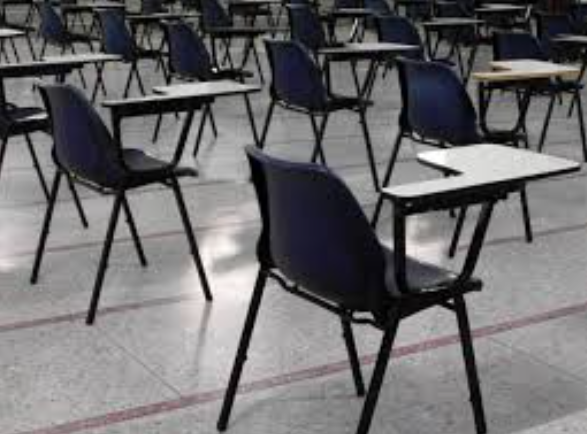Juniors weigh in on NJGPA testing

Photo Credit: Public Domain Pictures
March 29, 2023
As Dr. Parent read out instructions in the background, junior students slumped in their seats, laptops open to TestNav. Set up in the school cafeteria, the air was buzzing with restlessness. A chorus of yawns and soft typing noises echoed throughout the room. The general consensus was that it was too early for standardized testing. This year marks the second year that passing the New Jersey Graduation Proficiency Assessment (NJ GPA) is a graduation requirement.
Among other concerns, some students are worried about the test eating into their class time. As AP tests approach, missing instruction time comes at a very high price for already exhausted students. With the exam taking up the first two periods, some will miss their AP classes 4 out of 5 days.
“I think that state testing is annoying above all else. All it does is make us miss class to do very easy math problems and language art questions, which is an issue for people who have hard classes in the morning,” noted junior Leo Russo.
For students who didn’t have all-junior classes in the morning, completing missing work proved to be a nuisance. Junior Francesca Schneidman expressed that although she was required to be at state testing, she did have to complete all missing assignments.
“I have to catch up on everything I missed,” Schneidman stated, “It’s not like I have a ton of extra free time.”
Some students described feeling blindsided by the test. Leading up the exam, juniors were asking all of their teachers about the schedule, getting a different answer each time. It felt disorganized to many. It wasn’t really discussed, and the schedule for the week was up in the air. It wasn’t only students: some teachers were confused about the schedule.
“I didn’t really know about them [the NJGPA tests] until like a week or so in advance,” recalled Russo.
Another topic up for discussion was the timing and structure of the tests. Sitting down for a test for the first two periods everyday left many students feeling low-energy for the rest of the day.
“One thing I would change about state testing is the time we do it. So, maybe one day we have it in the morning, and maybe the next day in the afternoon. It might spread out the workload a little bit,” stated Russo.



